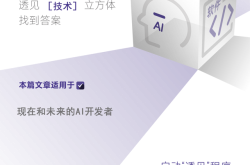Honda Aims to Be Nissan's 'White Knight,' Amidst Foxconn's Bid for 'Third Party' Role
![]() 12/20 2024
12/20 2024
![]() 588
588
Foxconn remains undeterred in its pursuit of automotive manufacturing.
Recently, Nissan has been facing turmoil amidst rumors of bankruptcy. As a potential acquirer, Honda is also facing challenges as 'car manufacturing enthusiast but unsuccessful' Foxconn prepares to intervene in the acquisition of Nissan.
For Nissan, Foxconn may not be a 'lifesaver,' but for Honda, Foxconn is undeniably a troublemaker.
According to the latest news, Foxconn has approached Nissan Motor Company with the intention of acquiring a controlling stake. As we all know, Foxconn has been heavily investing in factories to produce electric vehicles and is interested in acquiring the entire Nissan company.
Currently, a Nissan spokesperson has declined to comment. With Foxconn's involvement, the entire situation exudes a sense of despair, as if saying, 'Foxconn is here, but I'm doomed.'
Who will be doomed?
Being a 'white knight' is not easy.
Honda has stated that if Foxconn attempts to make an acquisition, Honda will act as a white knight to protect Nissan.
It is well-known that Honda and Nissan, both Japanese companies, are currently in the early stages of courtship. Formal negotiations, including the possibility of a merger, may begin as early as December 23. These negotiations have the potential to create the world's third-largest automaker.
If Honda and Nissan's merger plan is successfully implemented, it will undoubtedly cause a significant shockwave in the Japanese automotive industry, giving birth to a formidable competitor capable of rivaling Toyota Motor Corporation, thereby profoundly transforming the landscape of the Japanese automotive industry and consolidating it into two major camps.
Shinji Aoyama, Executive Vice President of Honda, said the company is weighing several options, including a merger, capital cooperation, or even the establishment of a holding company. The alliance may also include Mitsubishi Motors, with which Nissan has established a strategic partnership.
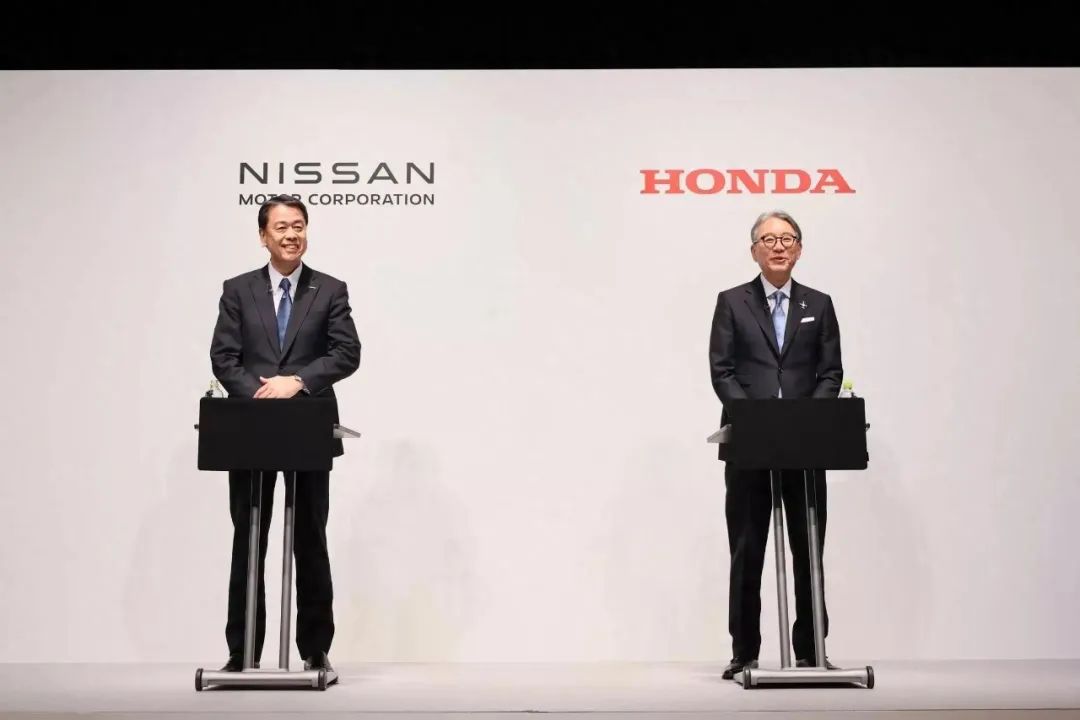
The purpose of the alliance is for Honda and Nissan to pool resources and compete with Tesla, BYD, and other Chinese automakers in the global market, while also being able to compete with Toyota in the Japanese domestic market.
It is reported that Renault is open to the idea of a merger between Honda and Nissan. Renault, which holds a 36% stake in Nissan and remains its largest shareholder, will play a crucial role in approving any agreement. Jean-Dominique Senard, Chairman of the Renault-Nissan-Mitsubishi Alliance and Renault, has stated that Renault would welcome any new partnership that strengthens the alliance members.
From these statements and objectives, it is evident that the alliance between Honda and Nissan is already in the stage of 'mutual affection.' Although both parties have not immediately responded to requests for comment on the negotiation date.
Just as these two Japanese companies were preparing to embark on another chapter of 'cherry blossoms and samurai warriors,' a third party has entered the picture. According to reports, Foxconn has approached Nissan regarding the acquisition of its shares. Foxconn is not just interested in equipment but in the entire Nissan company.
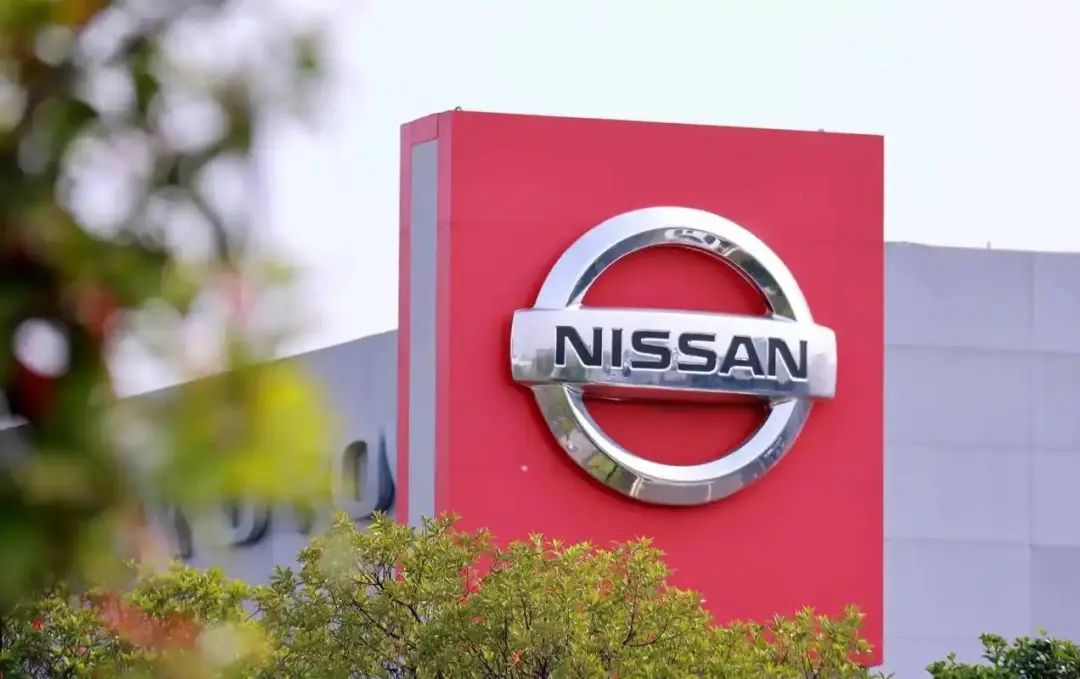
Upon hearing this news, Honda and Nissan quickly took measures to strengthen their cooperation. Nissan, upon learning of Foxconn's actions, held urgent behind-the-scenes consultations to seek countermeasures.
Honda, which established a strategic partnership with Nissan in August, is also concerned about Foxconn's moves. A Honda executive issued a stern warning to Nissan, stating, 'If Nissan cooperates with Foxconn, we will cancel our partnership.'
Prior to this, Honda and Nissan had already signed a memorandum of understanding in March this year to fully cooperate on electric vehicle business, including the production of electric vehicle-related components, the development of automotive software and artificial intelligence, especially the generalization of in-vehicle software. In August, Mitsubishi Motors also joined the new partnership.
The concern is mutual: Honda and Nissan's partnership may be jeopardized by Foxconn's actions. Foxconn's efforts in car manufacturing are quite unwelcome.
However, Honda's concerns are well-founded. According to a report by the Financial Times, an executive stated that even after selling some of its Mitsubishi shares, Nissan's current cash can only support operations for 12-14 months, so management needs to find investors as soon as possible.
According to Nissan's financial report, for the first half of fiscal year 2025, Nissan's revenue was 5.98 trillion yen, a decrease of 1.3% year-on-year, with an operating profit of only 32.908 billion yen, a decrease of 90.2% year-on-year, resulting in a net loss of 9.3 billion yen (approximately 440 million yuan).
Lack of funds makes it possible for Nissan to cooperate with Foxconn. According to Nihon Keizai Shimbun, to acquire a controlling stake in Nissan, Hon Hai Group, the parent company of Foxconn, is targeting Nissan shares held by Renault in a trust bank.
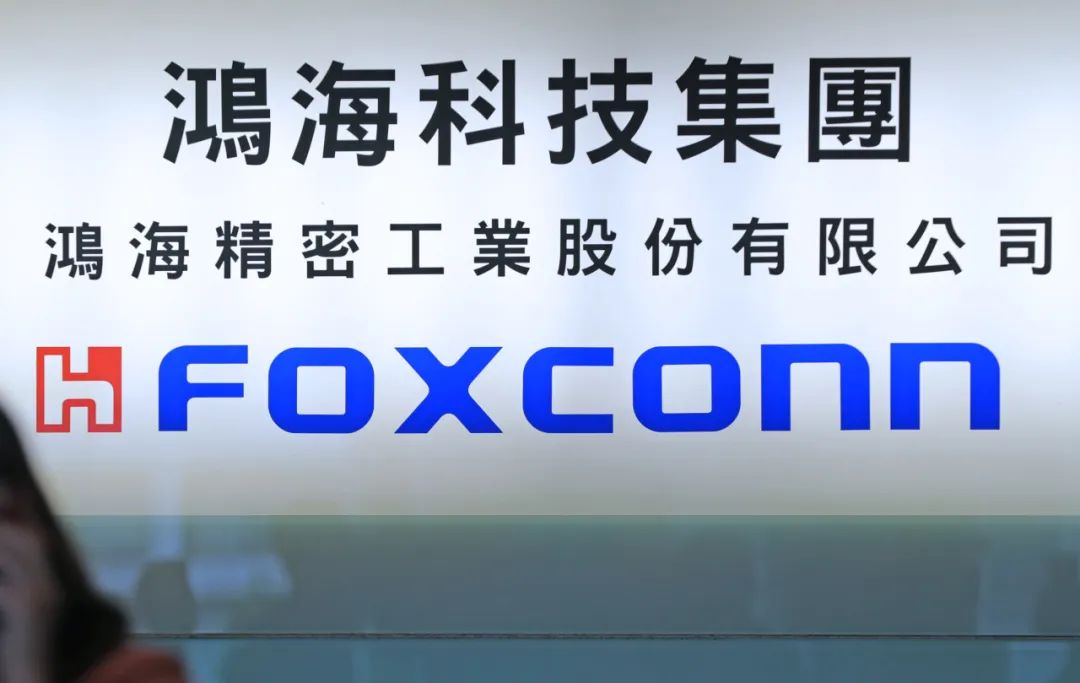
As of September this year, Renault still had 22.8% of Nissan's shares held in a trust bank. Hon Hai Group believes that by acquiring these shares, it can participate in Nissan's operations. Given Foxconn founder Terry Gou's personality, he must obtain control to participate in operations.
According to Nikkei Asian Review, Jun Sekiguchi, the Chief Strategy Officer who currently leads Hon Hai's EV business, was once the third-in-command at Nissan and Hon Hai has focused on expanding into the Japanese market.
Jun Sekiguchi served Nissan for 33 years, holding positions such as Executive Director of Nissan, President of Dongfeng Motor Co., Ltd., and Senior Vice President of the Renault-Nissan-Mitsubishi Alliance, among others, before leaving in January 2020. In January 2023, Sekiguchi joined Foxconn as the Chief Strategy Officer for the electric vehicle joint venture and became the CEO of the electric vehicle business in April this year.
With this connection, it is not alarmist to suggest that Gou wants to obtain control of Nissan's operations. Gou often says, 'What I'm best at is planning.' He plans for the supply chain and the survival of the enterprise, embodying a strong sense of personal heroism as a businessman who excels at standing at the forefront of trends.
However, Nissan may not be able to withstand Gou's plans.
Hit-and-run tactics.
The reason why Honda opposes and wants to be Nissan's white knight is also due to Foxconn's erratic hit-and-run tactics in automotive manufacturing.
Regarding automotive manufacturing, Foxconn has been at it for over a decade, and it can be described in two sentences: 'Got an early start but missed the bus' and 'Tried and failed repeatedly.'
Despite planning for 19 years in the automotive field, previous efforts have yielded minimal results. When it comes to 'soft power' such as connected vehicle and autonomous driving, Foxconn is not commonly associated.
'A downturn is the best time to train troops,' a phrase often said but seldom practiced by Gou.
Since 2005, Foxconn has been eager to get a piece of the automotive pie, investing in many upstream automotive parts companies but still focusing on IT product manufacturing as its main business. After a decade of automotive efforts, by 2015, Foxconn only owned a wire harness company and became a supplier to Tesla.
Foxconn's automotive endeavors have mostly ended abruptly. Foxconn has dabbled in electric vehicle rental companies, co-funded new forces such as Byton and Aichi with Tencent and Harmony Auto, and established joint ventures with Fiat Chrysler, Yulon Motor Group, and Geely Automobile...
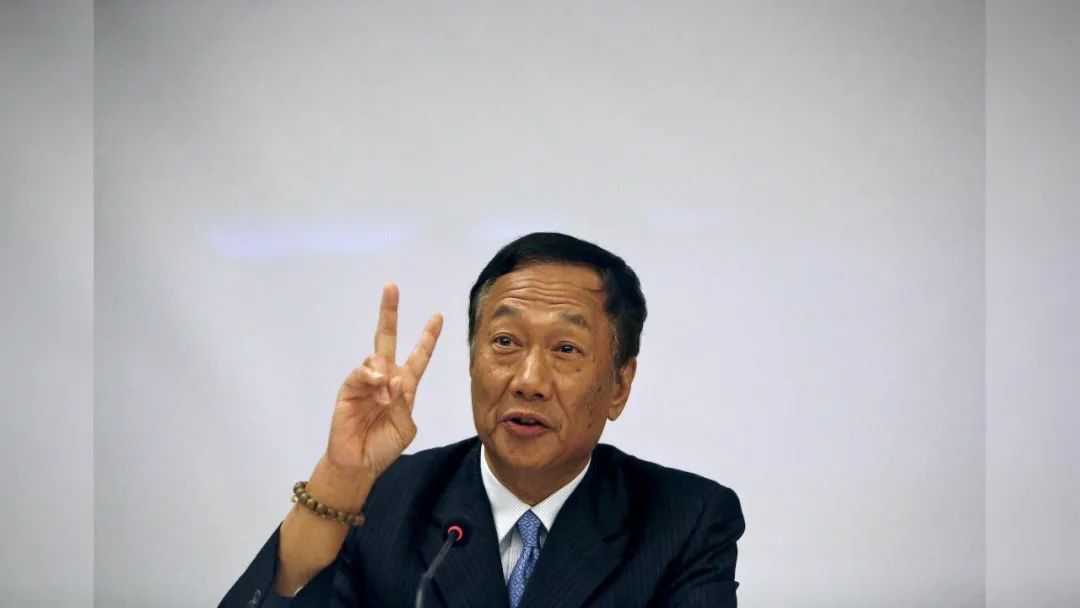
This can be attributed to Gou's management philosophy: direction, timing, and degree must all be accomplished through speed. Once he senses risk, he quickly retreats to safety, leaving partners in disarray.
Superficial engagement is an accurate description. Foxconn originally had the first-mover advantage, but others ended up laughing last. In 2015, on the eve of the electric vehicle trend, Foxconn joined forces with Tencent and Harmony Auto to form a new car company, Harmony Auto & Tech, the predecessor of Byton and Aichi. However, in 2016, Foxconn withdrew its investment and ran away.
Gou, who realized that automotive manufacturing was not as simple as he thought, even said that he had lost hope in automotive manufacturing.
Later, Foxconn aimed to upgrade from a parts supplier to an OEM, replicating its success in electronic products. It wasn't until November 2020 that Foxconn officially entered the new energy sector. Young Liu, Chairman of Hon Hai Group, officially announced the company's entry into the new energy vehicle industry, with the goal of capturing 10% of the electric vehicle market within five years.
Liu dared to say it, but no one dared to believe it.
Two months later, in January 2021, Foxconn announced the establishment of a joint venture with Geely Holding Group to provide OEM production and customized consulting services for global automotive and mobility enterprises in vehicle and parts manufacturing.
The signing of the agreement between Foxconn and Geely was once regarded as a turning point for Gou's automotive endeavors. After all, both Gou and Huang Qiulian, the Group's Chief Financial Officer, were present at the signing ceremony. Huang's presence usually signifies important strategic layout and development occasions for Foxconn.
However, the joint venture has since been dissolved, and public interactions between the two parties have been virtually non-existent since the cooperation was implemented.
In 2021, Foxconn finally unveiled its pure electric vehicle brand, Foxtron, along with three new models: the mid-size SUV Model C, the luxury flagship sedan Model E, and the electric bus Model T. From the naming of the models, it is evident that Foxconn is blatantly emulating Tesla, with Young Liu directly expressing his admiration for Tesla during the launch event and hoping that Tesla would come to them for OEM services.
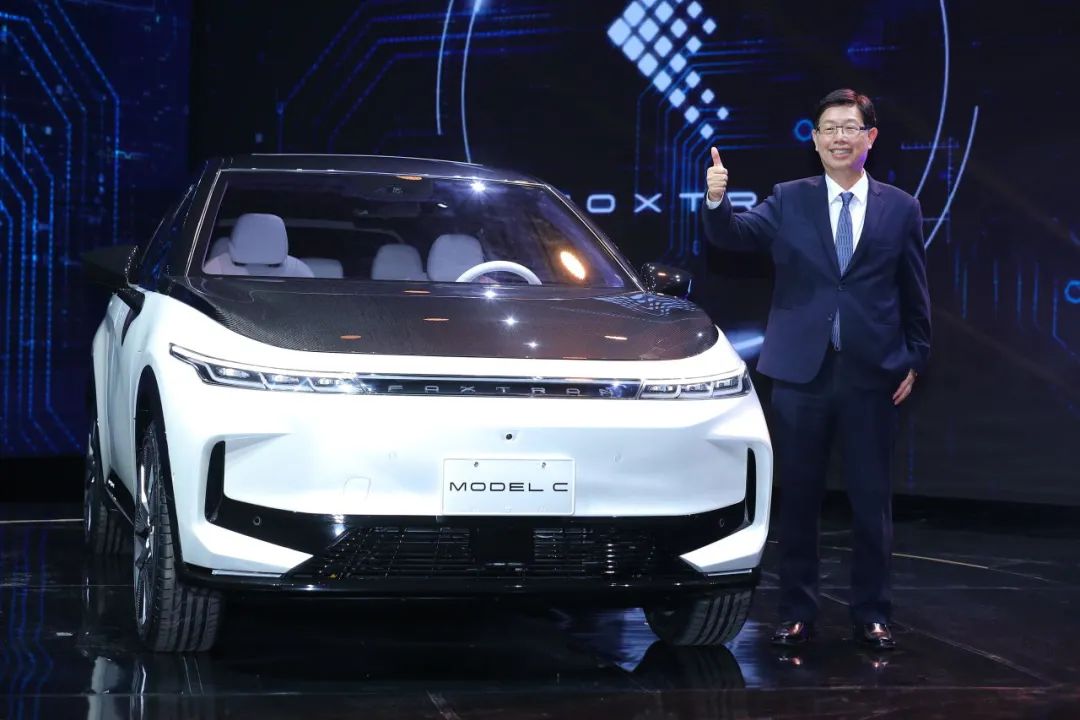
However, Foxconn's primary goal in automotive manufacturing is to promote its open platform, MIH, as well as a comprehensive set of standard solutions ranging from design and development to OEM production. Young Liu once gave an accurate summary of MIH, stating that Foxconn hopes the platform will become the Android of electric vehicles.
With a lack of reverence for the market and insufficient OEM experience, Foxconn's new cars have had minimal visibility due to quality issues. Many people are not even aware of the existence of the Foxtron brand, which has since gone bankrupt.
Yes, bankrupt.
Undeterred, Foxconn decided to 'replicate the success of the electronics industry' and regain lost ground. Young Liu also believes that he can replicate the same success in the electric vehicle sector, with Foxconn providing value by reducing the huge investment in developing and manufacturing vehicles.
However, Foxconn's strengths lie in manufacturing and supply chain management, electronic component development, and abundant resources. The core competitiveness of new energy vehicles lies in key technologies such as chips, batteries, autonomous driving, and intelligent connectivity. Foxconn lacks technical accumulation and independent research and development capabilities.
In January 2023, Foxconn established a strategic partnership with NVIDIA to jointly develop autonomous driving and self-driving vehicle platforms. According to the cooperation agreement, Foxconn will produce electronic control units (ECUs) based on NVIDIA's DRIVE Orin as a tier-one manufacturer. Foxconn's electric vehicles will also adopt the DRIVE Orin ECU and DRIVE Hyperion sensor architecture.
This cooperation falls within Foxconn's comfort zone.
However, it is widely known that 'Gou has not earned any money from investing in the automotive business.'
Nevertheless, Gou remains undeterred in his pursuit of automotive manufacturing. This year, he made three trips to Henan Province to reinvest. Gou not only attended the event in person but also brought an investment of up to 1 billion yuan to build a new headquarters building in Zhengzhou. Foxconn is eager to make breakthroughs, and Henan Province also has a need to develop the new energy vehicle industry, making this a perfect match for both parties.
Foxconn's journey in automotive manufacturing, up to this point, fully embodies Gou's saying, 'Where the sun sets, that's where we strike.'
When Foxconn's automotive efforts are still in disarray, the company wants to seize a ready-made opportunity. With money, it can acquire a 22.8% stake in Nissan and participate in its operations.
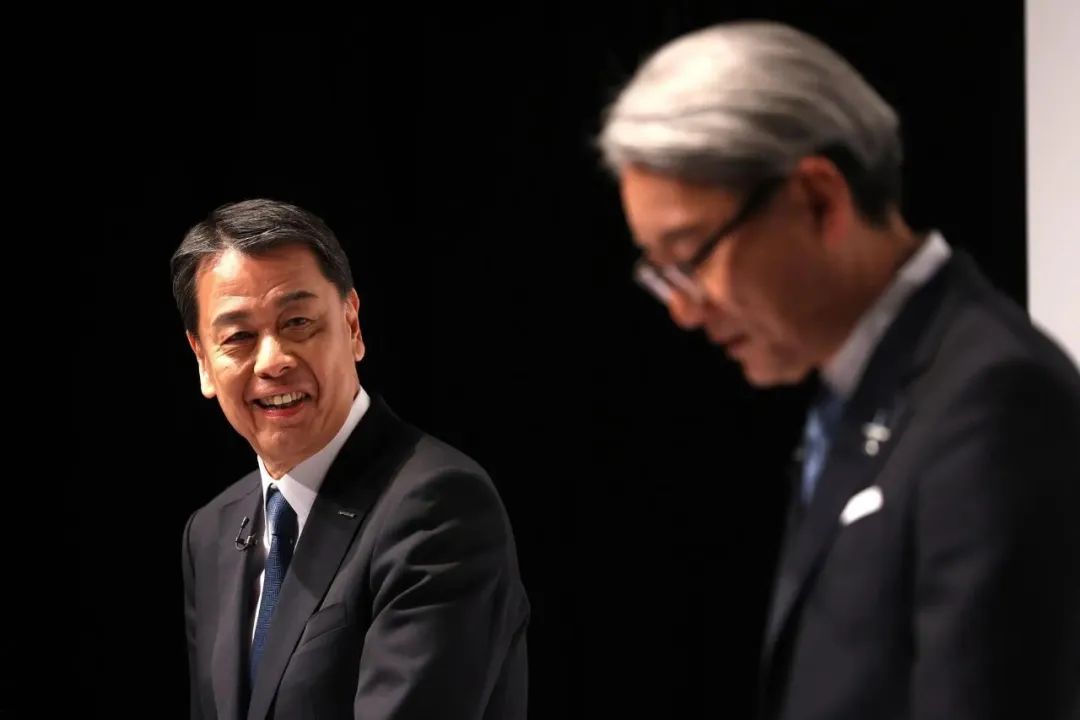
Foxconn participating in Nissan's operations?
For the Japanese, this is both hated and feared. Foxconn, like a 'lawnmower' army, leaves Japanese farmers with sickles at a loss.
Gou's affection for Japanese companies is unparalleled. After acquiring the century-old Japanese company Sharp and investing in SoftBank Asia Capital, he also extended an olive branch to Toshiba Corporation.
Nissan's predicament has given Gou an opportunity.
At the Foxconn shareholders' meeting in May this year, Foxconn expressed its desire to OEM pure electric vehicles for Japanese automakers, replicating the iPhone model to increase profit margins and achieve regrowth. Foxconn plans to mass-produce its second passenger car model, 'Model B,' in the first half of 2025.
This is an excellent opportunity.
Foxconn seems to be enjoying its role as the 'uninvited guest' in Honda and Nissan's alliance plans.
Note: Some images are sourced from the internet. If there is any infringement, please contact us for removal.

